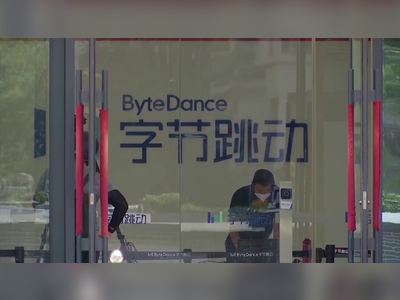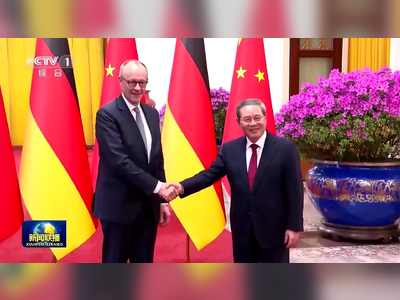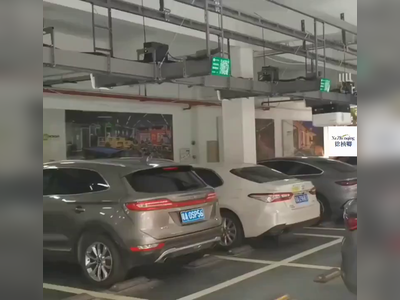Manila Times
Upholding Truth. Empowering the Philippines
Friday, Feb 27, 2026
The Nation's Story is Told with Honor

Philippine Inflation Falls to Five-Year Low, Rate Cuts Anticipated
A significant decline in inflation raises expectations for interest rate cuts by the Bangko Sentral ng Pilipinas.
Headline inflation in the Philippines has dropped to its lowest level in over five years, prompting expectations from both local and international financial institutions that the Bangko Sentral ng Pilipinas (BSP) will reduce key interest rates.
Anticipations suggest a cumulative reduction of 75 basis points (bps) by the end of the year, with the first cut likely to occur during the upcoming policy meeting in June.
According to recent data from the Philippine Statistics Authority (PSA), inflation slowed to 1.5 percent in April, down from the 1.8 percent recorded in March.
This marks the most modest inflation rate since November 2019, when it recorded at 1.2 percent, prior to the disruptions caused by the Covid-19 pandemic.
April's inflation figure is significantly below the government's target range of two to four percent but remains within the BSP's forecast range of 1.3 to 2.1 percent.
Deepali Bhargava, head of Asia-Pacific regional research at ING, noted that expectations for continued interest rate reductions are bolstered by the stronger local currency and high real interest rates, alongside prevailing uncertainties regarding global economic growth.
ING has subsequently revised its inflation outlook for the year down from a previous estimate of 2.8 percent to 2.4 percent, citing lower-than-anticipated inflation readings in the first quarter, a notable decline in oil prices, and a robust local currency.
HSBC economist Aris Dacanay remarked that the weak inflation data represents positive news for the Philippine economy, particularly amid concerns over global trade and economic activity.
Following the sustained decline in inflation, ING updated its forecast, predicting that the policy rate could fall to 4.75 percent by the end of 2023, having previously been set at 5.5 percent following a cut from 5.75 percent in April.
The BSP's strategy to ease monetary policy is aimed at safeguarding local GDP growth from challenges posed by the external economic environment, particularly the risks associated with global trade tensions, including tariffs imposed by the United States on various trading partners, impacting Philippine exports.
Dacanay indicated that low inflation could enable the BSP to adjust monetary policy further to stimulate domestic economic activity.
He posited that if inflation continues to surprise on the downside, the BSP may consider introducing up to three quarter-point cuts before the end of the year.
Similarly, economists from Rizal Commercial Banking Corporation (RCBC) predict that a quarter-point cut is likely as early as June, emphasizing the sluggish performance of the Philippine economy in recent quarters as a catalyst for potential monetary easing.
As further developments in the global trade landscape unfold, analysts point out that the next policy meeting in June will be crucial in determining the BSP's monetary policy approach moving forward.
Anticipations suggest a cumulative reduction of 75 basis points (bps) by the end of the year, with the first cut likely to occur during the upcoming policy meeting in June.
According to recent data from the Philippine Statistics Authority (PSA), inflation slowed to 1.5 percent in April, down from the 1.8 percent recorded in March.
This marks the most modest inflation rate since November 2019, when it recorded at 1.2 percent, prior to the disruptions caused by the Covid-19 pandemic.
April's inflation figure is significantly below the government's target range of two to four percent but remains within the BSP's forecast range of 1.3 to 2.1 percent.
Deepali Bhargava, head of Asia-Pacific regional research at ING, noted that expectations for continued interest rate reductions are bolstered by the stronger local currency and high real interest rates, alongside prevailing uncertainties regarding global economic growth.
ING has subsequently revised its inflation outlook for the year down from a previous estimate of 2.8 percent to 2.4 percent, citing lower-than-anticipated inflation readings in the first quarter, a notable decline in oil prices, and a robust local currency.
HSBC economist Aris Dacanay remarked that the weak inflation data represents positive news for the Philippine economy, particularly amid concerns over global trade and economic activity.
Following the sustained decline in inflation, ING updated its forecast, predicting that the policy rate could fall to 4.75 percent by the end of 2023, having previously been set at 5.5 percent following a cut from 5.75 percent in April.
The BSP's strategy to ease monetary policy is aimed at safeguarding local GDP growth from challenges posed by the external economic environment, particularly the risks associated with global trade tensions, including tariffs imposed by the United States on various trading partners, impacting Philippine exports.
Dacanay indicated that low inflation could enable the BSP to adjust monetary policy further to stimulate domestic economic activity.
He posited that if inflation continues to surprise on the downside, the BSP may consider introducing up to three quarter-point cuts before the end of the year.
Similarly, economists from Rizal Commercial Banking Corporation (RCBC) predict that a quarter-point cut is likely as early as June, emphasizing the sluggish performance of the Philippine economy in recent quarters as a catalyst for potential monetary easing.
As further developments in the global trade landscape unfold, analysts point out that the next policy meeting in June will be crucial in determining the BSP's monetary policy approach moving forward.
AI Disclaimer: An advanced artificial intelligence (AI) system generated the content of this page on its own. This innovative technology conducts extensive research from a variety of reliable sources, performs rigorous fact-checking and verification, cleans up and balances biased or manipulated content, and presents a minimal factual summary that is just enough yet essential for you to function as an informed and educated citizen. Please keep in mind, however, that this system is an evolving technology, and as a result, the article may contain accidental inaccuracies or errors. We urge you to help us improve our site by reporting any inaccuracies you find using the "Contact Us" link at the bottom of this page. Your helpful feedback helps us improve our system and deliver more precise content. When you find an article of interest here, please look for the full and extensive coverage of this topic in traditional news sources, as they are written by professional journalists that we try to support, not replace. We appreciate your understanding and assistance.











